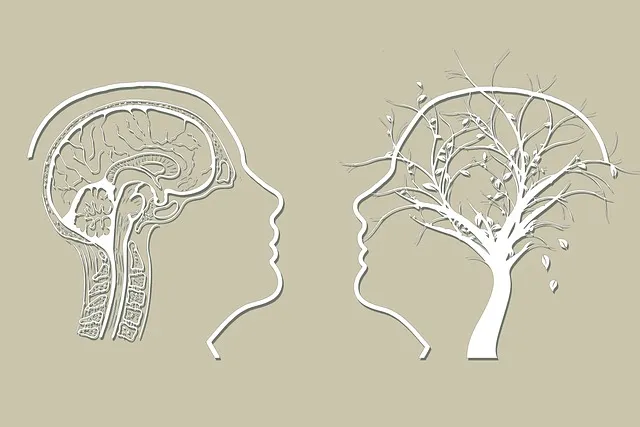The Kaiser Permanente mental health center in Parker prioritizes emotional intelligence (EI) as a vital component of well-being, going beyond awareness to include regulation, communication, and coping skills. Their comprehensive programs, including therapeutic sessions, workshops, and support groups, promote self-awareness, empathy, and resilience, reducing mental illness stigma and fostering community connections. Positive Kaiser Permanente mental health center reviews highlight the effectiveness of their EI development approach, which also includes training for professionals to enhance compassionate care. Through self-reflection, active listening, and stress reduction techniques, individuals build emotional intelligence, leading to stronger relationships, enhanced support networks, and a healthier community as indicated by positive feedback from Parker residents.
Emotional intelligence (EI) is a powerful tool for navigating life’s complexities, fostering meaningful connections, and achieving well-being. This article explores the essential components of EI, highlighting the critical role that organizations like the Kaiser Permanente Mental Health Center in Parker play in its development. We’ll delve into practical strategies for enhancing self-awareness, building empathy, and practicing active listening—skills that not only benefit individuals but also revolutionize interactions within communities.
- Understanding Emotional Intelligence: A Key to Well-Being
- The Role of Kaiser Permanente Mental Health Center in EI Development
- Strategies for Enhancing Self-Awareness: The First Step Towards EI
- Building Empathy: Connecting with Others on a Deeper Level
- Practicing Active Listening: A Powerful Tool for Effective Communication
Understanding Emotional Intelligence: A Key to Well-Being

At the Kaiser Permanente mental health center in Parker, understanding emotional intelligence (EI) is recognized as a cornerstone for overall well-being. EI, often described as the ability to recognize and manage one’s own emotions, as well as understand and empathize with others’ feelings, plays a pivotal role in navigating life’s challenges. Beyond mere emotional awareness, it encompasses skills like emotional regulation, coping skills development, and effective communication, all of which contribute to enhanced mental health and strong relationships.
The Kaiser Permanente mental health center reviews consistently highlight the importance of EI in treatment plans, reflecting its recognition as a game-changer in mental illness stigma reduction efforts. By fostering emotional intelligence, individuals can better cope with stress, navigate interpersonal interactions with increased confidence, and build resilience against adversity. This proactive approach to mental wellness not only improves individual lives but also strengthens community connections, creating a more supportive environment for those facing mental health challenges.
The Role of Kaiser Permanente Mental Health Center in EI Development

The Kaiser Permanente Mental Health Center in Parker plays a pivotal role in fostering emotional intelligence (EI) development among its clients and even the broader community. This center, renowned for its comprehensive mental health services, offers specialized programs that address various aspects of EI. Through therapeutic sessions, workshops, and support groups, individuals gain insights into their emotions and learn effective strategies to manage them. The center’s holistic approach, which incorporates Emotional Well-being Promotion Techniques, allows clients to enhance self-awareness, empathy, and resilience—key components of emotional intelligence.
One notable contribution is its focus on training mental health professionals. The Risk Management Planning for Mental Health Professionals program equips practitioners with the skills to navigate complex situations with empathy, ensuring they provide compassionate care while maintaining professional boundaries. Additionally, social skills training sessions enable professionals to connect better with clients, fostering a supportive environment that encourages open communication and emotional expression. These initiatives reflect the center’s commitment to not only individual healing but also the broader advancement of emotional intelligence within the mental health profession.
Strategies for Enhancing Self-Awareness: The First Step Towards EI

Developing self-awareness is a cornerstone of emotional intelligence (EI) and a key focus area for many mental health professionals. At Kaiser Permanente mental health centers, like those in Parker, experts emphasize that cultivating this skill set involves introspective practices and a willingness to explore one’s thoughts, emotions, and behaviors. A strong starting point is regular self-reflection: taking time daily or weekly to assess your feelings, triggers, and reactions can offer valuable insights into your emotional landscape.
This process, often facilitated through therapy or mindfulness practices, allows individuals to recognize patterns, identify unhelpful responses, and gain a deeper understanding of their unique emotional needs. With this increased self-awareness comes the ability to make informed decisions about managing stress, regulating emotions, and responding effectively in various situations—all essential components for building EI as recommended in Crisis Intervention Guidance and promoting culturally sensitive practices as outlined in Risk Assessment for Mental Health Professionals.
Building Empathy: Connecting with Others on a Deeper Level

Building empathy is a cornerstone of emotional intelligence, fostering deeper connections with others. This skill is cultivated through actively listening to and understanding the feelings and perspectives of those around us. At Kaiser Permanente mental health centers in Parker, professionals emphasize the importance of putting oneself in another person’s shoes, acknowledging their emotions, and responding thoughtfully. By practicing this empathy, individuals can create a supportive environment that encourages open communication and strengthens interpersonal relationships.
Through mental health education programs designed to promote emotional intelligence, individuals learn effective stress reduction methods and conflict resolution techniques. These tools empower them to navigate challenging situations with greater empathy, ensuring everyone’s voices are heard and respected. By integrating these practices into daily life, folks can build more meaningful connections, enhance their support networks, and ultimately contribute to a healthier, more compassionate community—a goal consistently echoed in Kaiser Permanente mental health center reviews from Parker residents.
Practicing Active Listening: A Powerful Tool for Effective Communication

Active listening is a crucial skill for anyone looking to enhance their emotional intelligence and communication abilities. It’s a technique that involves focusing entirely on what your conversation partner is saying, both verbally and non-verbally, without judgment or distraction. This practice is particularly impactful in fostering meaningful connections and resolving conflicts, as evidenced by the positive Kaiser Permanente mental health center reviews from Parker residents.
By practicing active listening, individuals can better understand others’ perspectives, emotions, and needs, which are key components of emotional healing processes. It helps to reduce anxiety relief by creating an environment of trust and open communication. Moreover, it’s a valuable tool for risk assessment in mental health professionals, ensuring they gather comprehensive information and provide effective support to their clients.
Emotional intelligence, a vital skill in today’s interconnected world, can be cultivated through various methods. As highlighted by the Kaiser Permanente Mental Health Center in Parker, these include enhancing self-awareness, building empathy, and practicing active listening. By focusing on these aspects, individuals can improve their relationships, communication, and overall well-being. Incorporating these strategies into daily life, as suggested by the center’s reviews, can lead to significant personal growth and a more fulfilling life.






